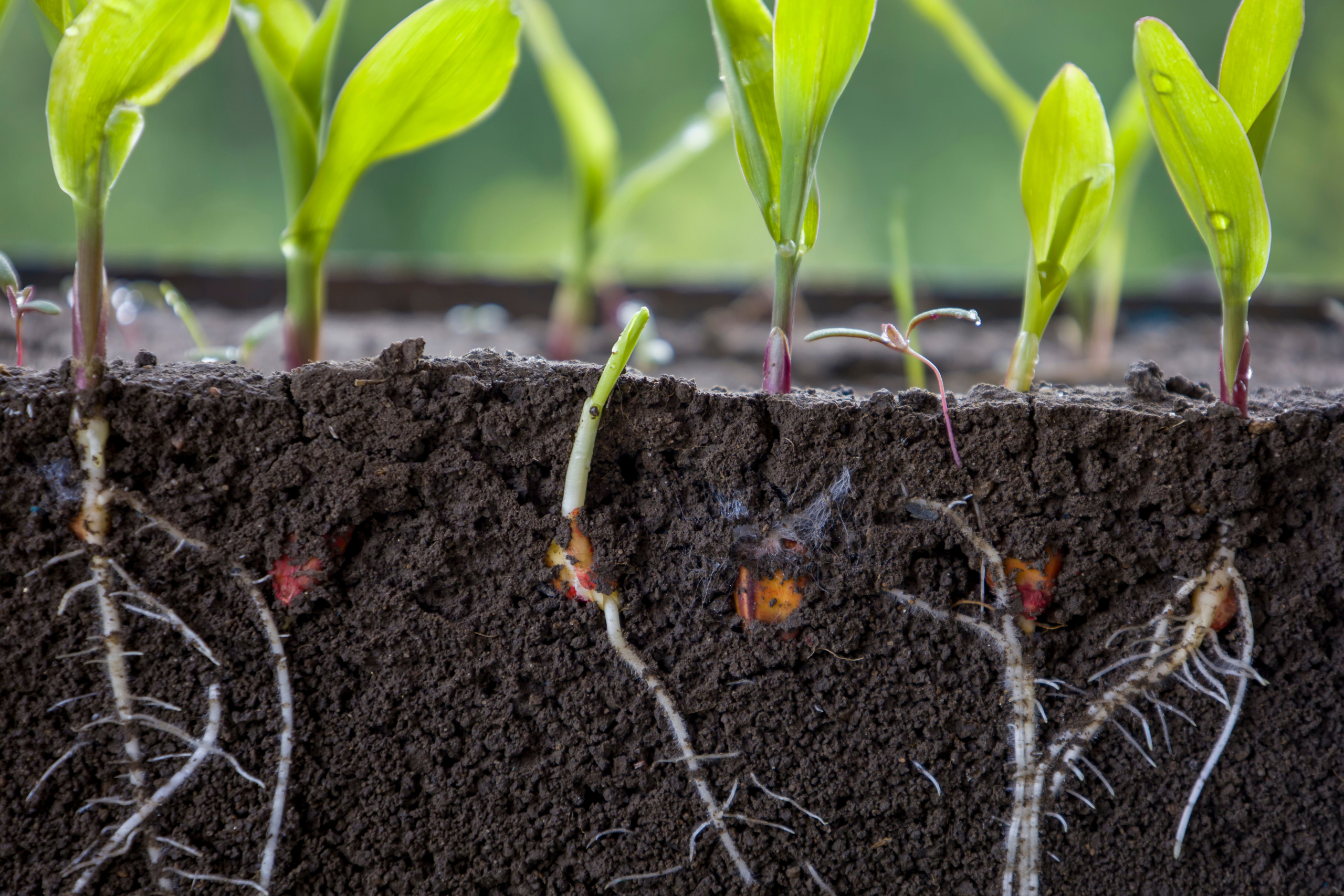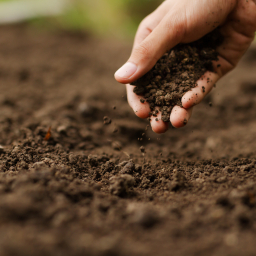NEW
The rhizosphere as a natural strategic space for boosting crop resilience to droughts
23 May 2025- At NEIKER we research the interactions between roots, biological secretions and microorganisms in the root zone to develop solutions that promote more sustainable and resilient agriculture.
Climate change has intensified the frequency and duration of droughts, making it one of the biggest challenges for agriculture. Water scarcity directly affects the ability of plants to grow and develop, compromising both their productivity and crop quality. This is compounded by the dependence on chemical fertilisers to make up for the lack of nutrients in the soil, a practice that not only aggravates the environmental impact, but can also weaken plant resistance to adverse conditions. Against this backdrop, it is essential to explore natural strategies that optimise water use and strengthen crop resilience.
In this context, the rhizosphere, the strip of soil surrounding the roots, plays a strategic role. This zone is a dynamic environment where roots constantly interact with micro-organisms, releasing chemical compounds that modify soil properties. These interactions favour nutrient uptake and improve water retention in the soil, allowing crops to make better use of resources and increase their resistance to water stress.
Compounds released by the roots, known as root exudates, are a major mechanism in this process, as they can mobilise nutrients, break down complex organic molecules or attract beneficial micro-organisms that promote soil structure.
In drought situations, the composition of exudates changes, favouring moisture retention and facilitating water absorption by the roots. ‘We have observed that some exudates contain surfactants that facilitate the re-entry of water into the soil after water stress,’ explains Lionel Dupuy, NEIKER’s Ikerbasque researcher.
However, the rhizosphere not only influences soil nutrition and hydration, but also enhances crop resilience through microbial activity. Nitrogen-fixing, phosphate solubilising and organic matter decomposing bacteria improve soil fertility and enhance the ability of plants to cope with water stress.
Aware of the importance of these processes, at NEIKER we promote various research projects focused on the relationship between roots, soil and microorganisms. ‘Our aim is to improve nutrient absorption and increase crop resistance to adverse conditions, such as soil drought or nutritional stress, in order to offer solutions that favour more sustainable agriculture,’ says Lionel Dupuy.
As part of the European Root2Res project, we are studying how root architecture and exudation of compounds can reduce water loss in the soil. Through the national BIOFLOW initiative, we are analysing the role of certain bacteria in the drought resistance of crops. In addition, in the European AdSoils project, we are developing artificial soils that allow us to closely observe the interactions between roots and micro-organisms, with the aim of improving crop nutrition and adaptation.
Advances in rhizosphere knowledge help us to lay the foundations for a more efficient and resilient agriculture, where soil biology becomes a strategic ally to face climate challenges and ensure the sustainability of agricultural production.






